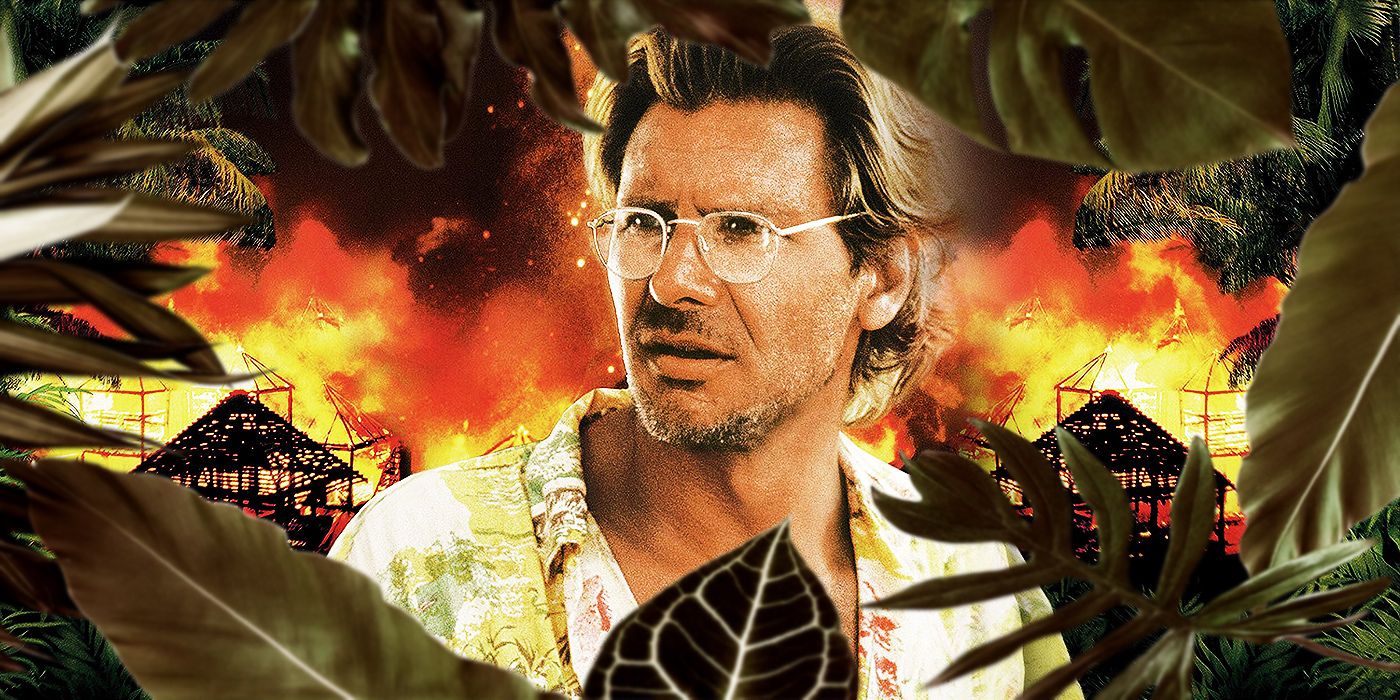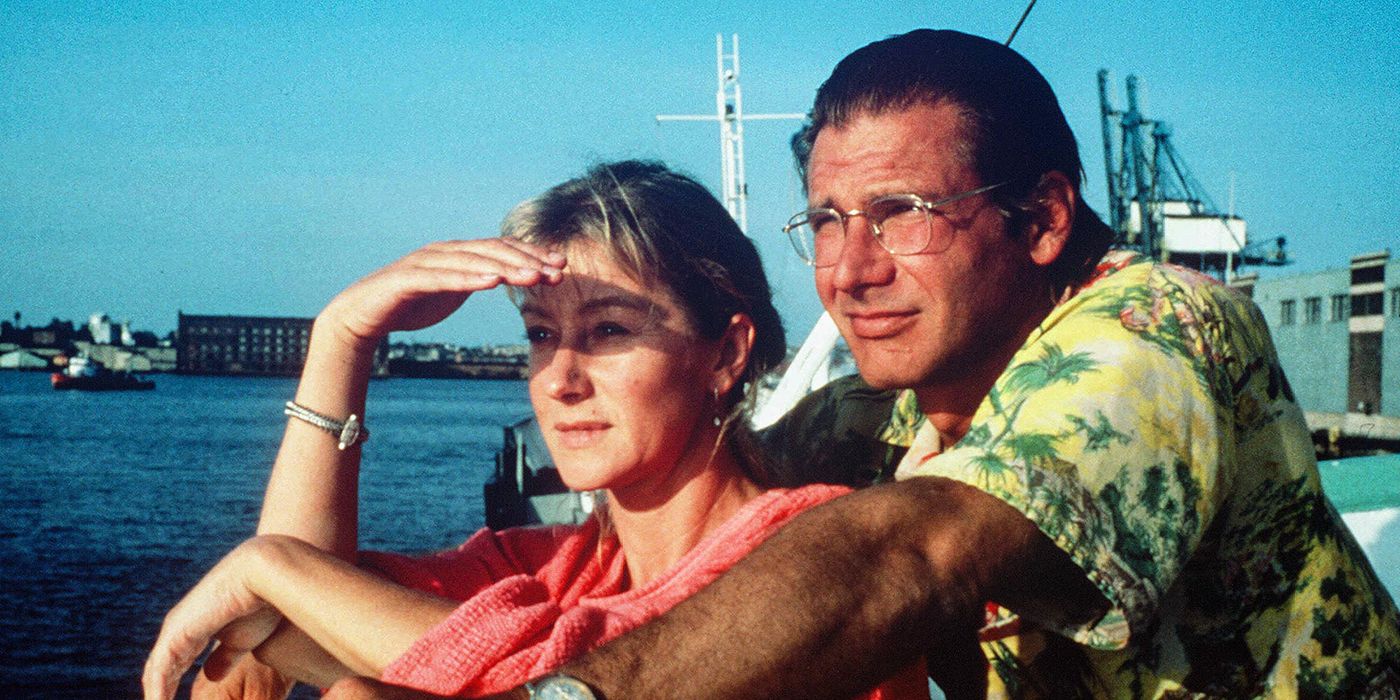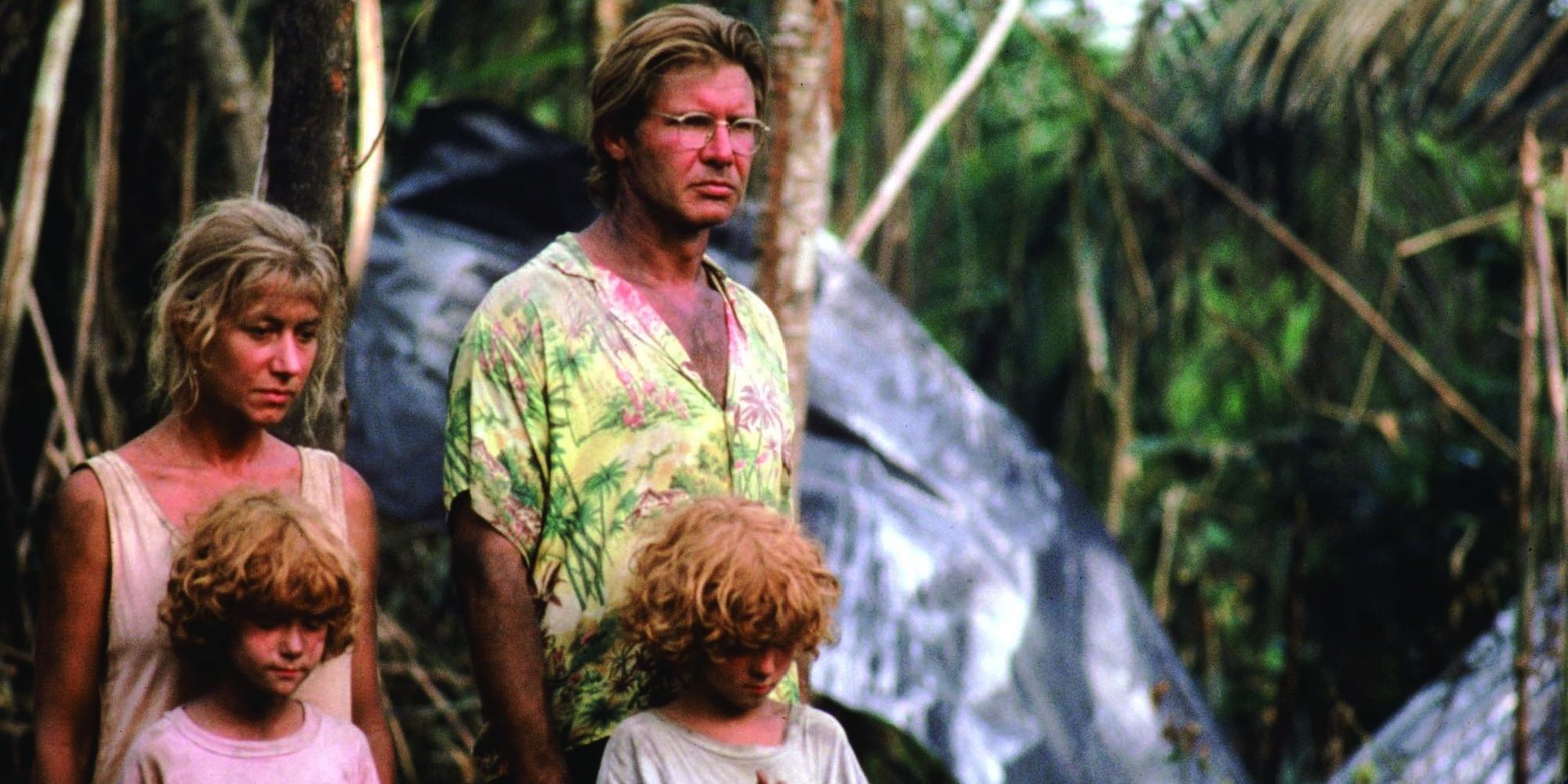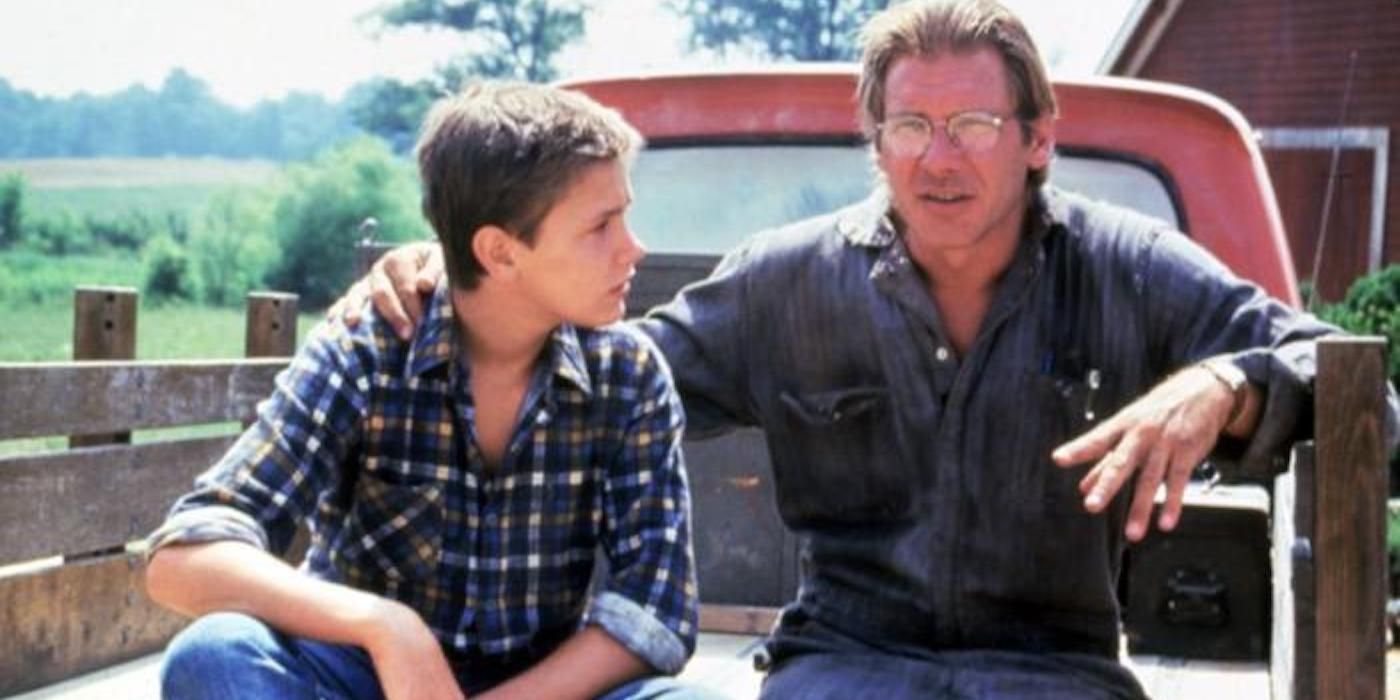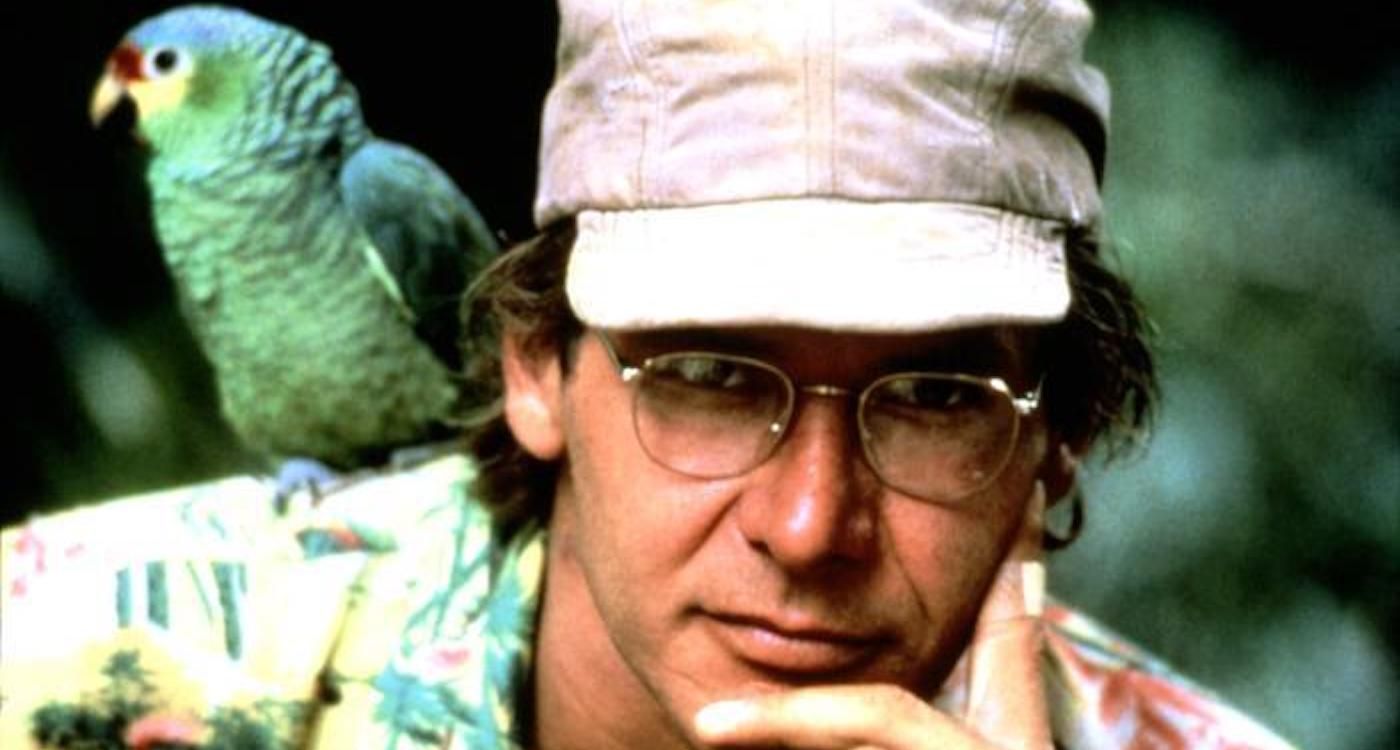Harrison Ford is back in the Indy hat with Indiana Jones and the Dial of Destiny swinging into theaters on June 30. But let's take it back to when the star was absolutely dominating the 1980s. Starring in two of the biggest franchises of all time (Indiana Jones and Star Wars) would probably be enough in itself, but Ford carefully selected roles that showcased his range. He scored his first and only Oscar nomination for Witness, took a chance on the eventual classic Blade Runner, and even tried being a romantic comedy lead in Working Girl.
This dynamite run allowed Ford to explore darker projects with prestige filmmakers. Alan J. Pakula’s Presumed Innocent and Roman Polanski’s Frantic both presented flawed protagonists with questionable motivations, but ultimately, they still cast Ford as a character worth rooting for. It was hard for Ford to shake his inherent charisma, and any deviation from that persona was a potential risk to his stardom. What then makes 1986’s The Mosquito Coast so interesting is that Ford did something he’d never tried before — he staked himself in a character that was completely unlikeable.
What Is 'The Mosquito Coast' About?
Based on the novel by Paul Theroux, The Mosquito Coast casts Ford as dogmatic inventor Allie Fox. Fox’s failure to find success with his inventions causes him to be disillusioned with the American Dream and convinced that the nation will be buried by an upcoming nuclear war. In an impromptu decision, Fox moves with his wife (Helen Mirren) and his young sons Charlie (River Phoenix) and Jerry (Jadrien Steele) to a village in South America with the dreams of leading an “advanced” colony with his designs for an ice machine he calls “Fat Boy.”
What follows is a classic tragedy of greed and the corrupting nature of capitalism as Fox completely descends into madness when his plans fail to materialize. There are echoes of the subversive adventure movie lifted from The Treasure of the Sierra Madre, as the prospects of the exotic location quickly turn into a nightmare of isolation and violence. It’s no surprise why Ford’s agents were hesitant for him to sign on initially and why the film itself failed to take off; for once in his career, Ford plays an outright villain.
Harrison Ford Ditched the Good-Guy Characters for Allie Fox
What’s doubly interesting about this particular role is that even before his mania escalates, Fox is a repellant character. He’s not an average man tempted by greed like Breaking Bad’s Walter White, and he doesn’t have the commanding presence and sharp business skills of There Will Be Blood’s Daniel Plainview. Fox is an odd duck completely in denial of his own skills as a designer. While his treatment of his family obviously escalates as their situation worsens, Fox is nasty and dismissive from the beginning. Ford completely subverts his image by weaponizing the sarcasm and weariness that made Indiana Jones or Han Solo so charming and transforms himself into an obsessive, pathetic character.
Screenwriter Paul Schrader is obviously no stranger to stories about men driven to madness, and The Mosquito Coast certainly has echoes of some of Schrader's previous work like Taxi Driver and Raging Bull. Schrader likes his monologues, and Ford gets to chew the scenery with extended ramblings about what he sees as a corrupt America on the brink of collapse. Ford reads Allen Fox's dialogue as just that — untethered ramblings. He’s desperate for an audience and alienates others with his eccentric behavior, so as a result, he dumps his unfiltered thoughts upon his hapless wife and children.
'The Mosquito Coast' Introduced Us to Dad-Mode Harrison Ford
This was the first time that Ford played a father on screen, which certainly helps him to shed any youthful qualities he may have still had in Star Wars or Indiana Jones. Fox’s dynamic with his children, particularly Phoenix’s Charlie, plays a key role in unlocking the character. The film’s opening scene follows an extended conversation about American consumerism exchanged between father and son. The condescending nature of the lecture at first reads as a somewhat misguided attempt to educate, but it becomes clear that the superiority complex is just part of Fox’s psyche.
“We eat when we're not hungry, drink when we're not thirsty,” Fox quips to his son at one point. “We buy what we don't need and throw away everything that's useful. Why sell a man what he wants? Sell him what he doesn't need. Pretend he's got eight legs and two stomachs and money to burn.” Who would ever peg someone coming off Return of the Jedi and Temple of Doom to break from his magnetic presence so dramatically?
Phoenix delivers a truly fantastic performance, and it’s clear why Ford recommended him to Steven Spielberg for the iconic opening flashback sequence in Indiana Jones and the Last Crusade. Charlie’s naivete about the world stems from his father’s inability to accept reality, and Ford’s denial is only exemplified once Charlie is forced to become the active problem-solver of the family.
'The Mosquito Coast' Hasn't Aged as Well as Ford's Other Works
It’s also interesting to see Ford in a film that has aged. Films like Blade Runner or The Fugitive are timeless with their stories, but it’s interesting to evaluate The Mosquito Coast for the elements that are era specific. In particular, the fears about a nuclear holocaust and the novelty of Fox’s criticism of religious missionaries aren’t quite as shocking as they were in 1986. There are story elements that feel antiquated, particularly the lack of attention granted to Mirren’s character and the lack of personality afforded to the South American natives. In many ways, it's more interesting to see Ford dump so much energy into a flawed film than it would be if The Mosquito Coast was regarded as one of his classics.
Ford physically transforms for the role and adopts enough strange physical ticks that elevate the performance beyond stunt casting. Although it occasionally comes off as a bid to be taken seriously, Ford has continuously rushed to the film’s defense in the years following its initially cool reception, calling it “full of powerful emotions” and reiterating his pride in what was the first outright flop of his career. Ford’s two collaborations with Peter Weir are among the most mature, nuanced performances he’s ever given, and it would’ve been interesting to see what a continued partnership between the two could’ve looked like. Witness is the better of the two films by a wide margin, an equally intense and delicate thriller that stands among the finest crime films of the 1980s. Ford’s Oscar-nominated performance is excellent, but he was ultimately playing another honorable protagonist.
It’s unlikely that The Mosquito Coast would’ve been made without Ford’s involvement (his part was initially meant for Jack Nicholson), and it’s unfortunate that the film didn’t translate into Ford pursuing more character roles. It’s unlikely that The Mosquito Coast is anyone’s favorite Ford movie, but it’s definitely one of his biggest swings, resulting in a uniquely captivating performance that continues to stand out in his storied career. However, it did inspire a TV remake by Apple TV+ in 2021 with Ford being replaced by Justin Theroux. The show was canceled after two seasons.

